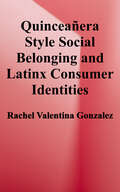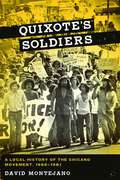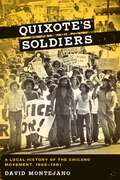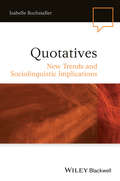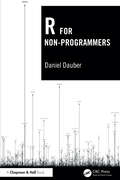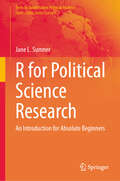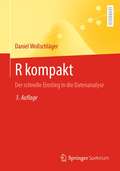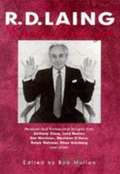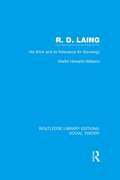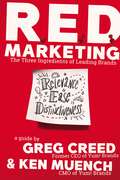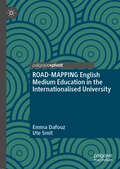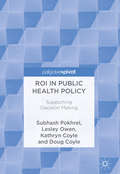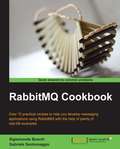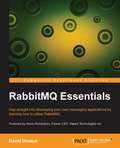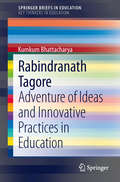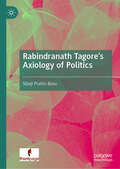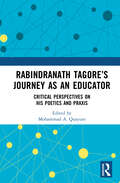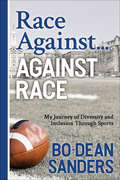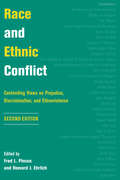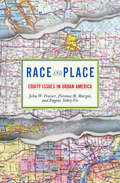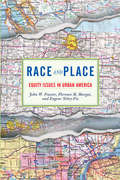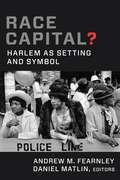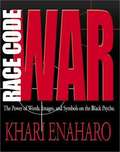- Table View
- List View
Quinceañera Style: Social Belonging and Latinx Consumer Identities
by Rachel Valentina GonzálezQuinceañera celebrations, which recognize a girl's transition to young womanhood at age fifteen, are practiced in Latinx communities throughout the Americas. But in the consumer-driven United States, the ritual has evolved from a largely religious ceremony to an elaborate party where social status takes center stage. <p><p>Examining the many facets of this contemporary debut experience, Quinceañera Style reports on ethnographic fieldwork in California, Texas, the Midwest, and Mexico City to reveal a complex, compelling story. Along the way, we meet a self-identified transwoman who uses the quinceañera as an intellectual space in her activist performance art. We explore the economic empowerment of women who own barrio boutiques specializing in the quinceañera's many accessories and made-in-China gowns. And, of course, we meet teens themselves, including a vlogger whose quince-planning tips have made her an online sensation. <p><p>Disrupting assumptions, such as the belief that Latino communities in the United States can't desire upward mobility without abandoning ethnoracial cultural legacies, Quinceañera Style also underscores the performative nature of class and the process of constructing a self in the public, digital sphere.
Quixote's Soldiers
by David MontejanoIn the mid-1960s, San Antonio, Texas, was a segregated city governed by an entrenched Anglo social and business elite. The Mexican American barrios of the west and south sides were characterized by substandard housing and experienced seasonal flooding. Gang warfare broke out regularly. Then the striking farmworkers of South Texas marched through the city and set off a social movement that transformed the barrios and ultimately brought down the old Anglo oligarchy. In Quixote's Soldiers, David Montejano uses a wealth of previously untapped sources, including the congressional papers of Henry B. Gonzalez, to present an intriguing and highly readable account of this turbulent period. Montejano divides the narrative into three parts. In the first part, he recounts how college student activists and politicized social workers mobilized barrio youth and mounted an aggressive challenge to both Anglo and Mexican American political elites. In the second part, Montejano looks at the dynamic evolution of the Chicano movement and the emergence of clear gender and class distinctions as women and ex-gang youth struggled to gain recognition as serious political actors. In the final part, Montejano analyzes the failures and successes of movement politics. He describes the work of second-generation movement organizations that made possible a new and more representative political order, symbolized by the election of Mayor Henry Cisneros in 1981.
Quixote's Soldiers: A Local History of the Chicano Movement, 1966–1981 (Jack and Doris Smothers Series in Texas History, Life, and Culture #26)
by David Montejano&“Detail[s] the grassroots interplay among the variety of ideologies, individuals, and organizations that made up the Chicano movement in San Antonio, Texas.&” –Journal of American History In the mid-1960s, San Antonio, Texas, was a segregated city governed by an entrenched Anglo social and business elite. The Mexican American barrios of the west and south sides were characterized by substandard housing and experienced seasonal flooding. Gang warfare broke out regularly. Then the striking farmworkers of South Texas marched through the city and set off a social movement that transformed the barrios and ultimately brought down the old Anglo oligarchy. In Quixote&’s Soldiers, David Montejano uses a wealth of previously untapped sources, including the congressional papers of Henry B. Gonzalez, to present an intriguing and highly readable account of this turbulent period. Montejano divides the narrative into three parts. In the first part, he recounts how college student activists and politicized social workers mobilized barrio youth and mounted an aggressive challenge to both Anglo and Mexican American political elites. In the second part, Montejano looks at the dynamic evolution of the Chicano movement and the emergence of clear gender and class distinctions as women and ex-gang youth struggled to gain recognition as serious political actors. In the final part, Montejano analyzes the failures and successes of movement politics. He describes the work of second-generation movement organizations that made possible a new and more representative political order, symbolized by the election of Mayor Henry Cisneros in 1981. &“A most welcome addition to the growing literature on the Chicana/o movement of the 1960s and 1970s.&” –Pacific Historical Review
Quotatives
by Isabelle BuchstallerQuotatives considers the phenomenon "quotation" from a wealth of perspectives. It consolidates findings from different strands of research, combining formal and functional approaches for the definition of reported discourse and situating the phenomenon in a broader typological and sociolinguistic perspective.Provides an interface between sociolinguistic research and other linguistic disciplines, in particular discourse analysis, typology, construction grammar but also more formal approachesIncorporates innovative methodology that draws on discourse analytic, typological and sociolinguistic approachesInvestigates the system both in its diachronic development as well as via cross-variety comparisonsPresents careful definition of the envelope of variation and considers alternative definitions of the phenomenon "quotation"Empirical findings are reported from distribution and perception data, which allows comparing and contrasting perception and reality
Qué hacen los grandes administradores: 17 Consejos prácticos para convertirse en un mejor gerente y empoderar a tu equipo
by Gary RandolphSe dice que un trabajador feliz es un trabajador productivo, un gerente puede hacer feliz a un trabajador al cual hará un trabajador productivo. Si quieres maximizar la produciión de tu firma u organización, debes tener algunas cualidades de liderazgo en ti. una de las responsabilidades de un gerente competente es ayudar a su equipo a mantenerse productivo y organizado. Este libro electrónico es una guía detallada para mejorar las habilidades gerenciales que incrementarán la producción de tu organización. Este libro electrónico te enseñará: -Cómo motivar a tu equipo -Cómo orgnizar a tu equipo -Mejorar las habilidades comunicativas -Consejos para convertirse en buen gerente -Cómo resarcirte -Problemas populares que enfrentan los gerentes -Cómo resolver los problemas populares
R for Non-Programmers
by Daniel DauberUnlock the Power of Data Analysis with RWhether you are a researcher, student, or professional new to programming, this book provides a step-by-step guide to mastering R for quantitative and mixed-methods analysis. Designed for those who still need to gain program- ming experience or wish to learn a new one, it demystifies data analysis, helping you tackle challenges from data wrangling to statistical modelling. Packed with practical examples, engaging explanations, and real-world applications, this book equips you with the tools to analyse data confidently, identify trends, and uncover meaningful insights.Transform Your Approach to ResearchThrough clear instructions and hands-on exercises, you will learn to prepare datasets, explore patterns with descriptive statistics, and create impactful visualisations. You will also gain confidence in performing statistical tests such as comparing groups and building predictive models using regression techniques. This book provides strategies and tools to streamline your workflow, whether handling large datasets, managing missing data, or conducting mixed-methods research.Each chapter builds your expertise incrementally, supported by accessible examples and interactive online training. The accompanying training modules, available through the book’s companion package, offer engaging exercises and extended examples to reinforce learning. These features enable you to practise skills and retain knowledge more effectively.This book, which strongly focuses on reproducible research, is an indispensable guide for anyone looking to enhance their analytical toolkit and unlock R’s full potential for data analysis and statistical modelling.
R for Political Science Research: An Introduction for Absolute Beginners (Texts in Quantitative Political Analysis)
by Jane L. SumnerThis text teaches basic R skills to political science students with no programming background. Intended specifically for the students who need to learn R for a class and who have no interest in R or may even be afraid of or hostile to it, this text builds an awareness of basics, confidence, and a skill set necessary to transition into more advanced texts. To that end, in addition to standard topics, this book includes three chapters specific to the new or reluctant learner. The Introduction explicitly sets expectations for how to use the book and discusses fixed and growth mentalities, and why a growth mentality is crucial for learning R. Chapter 1 includes some basic information on programming, R, and their place in political science research. Chapter 2 explicitly discusses errors, warnings, and methods of debugging. Further chapters build on this by including new errors or warnings that students may encounter as they progress. In service of the aim to give students a solid foundation in R and awareness of what it is and can do, this book teaches and uses both tidyverse and base R frameworks throughout. After completing the book, students should be prepared to learn more advanced materials.
R kompakt: Der schnelle Einstieg in die Datenanalyse
by Daniel WollschlägerDieses Buch bietet eine kompakte Einführung in die Datenauswertung mit der freien Statistikumgebung R. Ziel ist es dabei, einen Überblick über die Funktionalität von R zu liefern und einen schnellen Einstieg in die deskriptive Datenauswertung sowie in die Umsetzung der wichtigsten statistischen Tests zu ermöglichen. Zudem deckt das Buch die vielfältigen Möglichkeiten ab, Diagramme zu erstellen, Daten mit anderen Programmen auszutauschen und R durch Zusatzpakete zu erweitern. Das Buch ist damit für Leser geeignet, die R kennenlernen und rasch in konkreten Aufgabenstellungen einsetzen möchten.Für die 3. Auflage wurde das Buch grundlegend überarbeitet und auf Neuerungen der R Version 4.1.0 sowie der aktuellen Landschaft der Zusatzpakete abgestimmt. Mit einer stärkeren Ausrichtung auf Data Science Anwendungen stellt das Buch nun ausführlich die Pakete dplyr zur Datenaufbereitung und ggplot2 für Diagramme vor. Darüber hinaus enthält das Buch eine Darstellung von dynamischen R Markdown Dokumenten zur Unterstützung reproduzierbarer Auswertungen.
R. D. Laing: Creative Destroyer
by Bob MullanThis volume collects together accounts, both professional and personal, of R. D. Laing by those who knew him. Some view Laing as important as Jung or Freud - a revolutionary of his time. His psychiatry work in the 1960s and 1970s was unconventional, even radical, and Laing the man evoked a strong response from those who came into contact with him. The book features conversations, letters, photographs and poetry. Contributors include Allen Ginsberg, Anthony Clare, Ralph Metzner and Van Morrison.
R.D. Laing: His Work And Its Relevance For Sociology (Routledge Library Editions: Social Theory)
by Martin Howarth-WilliamsThis study, by a sociologist, provides the most rigorous and comprehensive review to appear so far of R. D. Laing's work and theoretical development. Martin Howarth-Williams considers that Laing's insights into such controversial issues as the divided self and the politics of the family are of an importance that transcends their basis in clinical psychiatry and that they have a special significance for sociology. Using the Progressive/Regressive Method of Jean-Paul Sartre, the author illuminates the internal coherence of Laing's aims through the various stages of his work and shows how his ideas are shaped by consistent philosophic presuppositions and influences underlying his work. To give as complete an account as possible of Laing's interests and to relate them to the broad stream of his thought, the author explores Laing's involvement in other non-psychiatric realms – especially politics, religion and eastern mysticism. Material has been secured from a wide variety of recent sources which include interviews, films, TV appearances and the author's own personal recollections of informal talks given by Laing. In the final section of the book Martin Howarth-Williams isolates the concept of 'Intelligibility', which he demonstrates to be the unifying theme central to Laing's theory and shows how this can be used as the basis for a critique of recent developments in sociological theory as well as a starting point towards a genuinely dialectical sociology.
R.E.D. Marketing: The Three Ingredients of Leading Brands
by Greg Creed Ken MuenchCreate breakthrough marketing campaigns that achieve staggering consumer response rates by harnessing the power of R.E.D. Marketing: a transparent and flexible methodology from the CEO and CMO of marketing powerhouse Yum! Brands—Taco Bell, KFC, Pizza Hut—with a genuine track record of success.Sidestep the other marketing books, courses, articles, and even TED talks that offer hypothetical explanations that sound sensible. Embrace the proven, systematic approach of RED Marketing, which the recent CEO and current CMO of Yum! Brands applied to lead Taco Bell and KFC to double digit growth—no PhD required!In 2011, Greg Creed had just been elevated from President to CEO of Taco Bell, a brand in deep distress at the time. It was on his shoulders to turn things around quickly along with co-author and CMO, Ken Muench. Together they developed the R.E.D (Relevance, Ease, Distinctiveness) method. It&’s simple methodology does not require complicated terms and a PhD to understand, it&’s actually quite simple—marketing works in three very different ways:Relevance—Is it relevant to the marketplace?Ease—Is it easy to access and use?Distinction—Does it stand out from competition?Combining actual examples from Yum! and other recognizable brands of every size around the world; the latest findings in marketing, neuroscience, and behavioral economics; and the author&’s own experience marketing three different brands across 120 countries—your brand can set and achieve a truly breakthrough marketing campaign utilizing R.E.D Marketing.
ROAD-MAPPING English Medium Education in the Internationalised University
by Emma Dafouz Ute SmitThis book is the first to offer a conceptual framework of English-medium education that can be used across different international higher education (HE) contexts. It provides readers with an understanding of the complexities, possibilities and challenges that this phenomenon raises in the 21st century. Making the case for the pressing need for an overarching conceptualisation, the authors discuss, from a theoretical point of view, the recently introduced ROAD-MAPPING framework for ‘English Medium Education in Multilingual University Settings’ (EMEMUS). Drawing on current research and examples from a variety of settings, the book makes a strong case for the applicability of the framework in two important directions: as a methodological tool for researching educational practices and as an analytical guide to examine policies and teacher education programmes.
ROI in Public Health Policy
by Subhash Pokhrel Lesley Owen Kathryn Coyle Doug CoyleThe demand for return in investment (ROI) analyses in public health is on the rise as a ‘business case’ needs to be presented before a public health programme can be funded. This book explains the science behind ROI analyses and shows how policy makers can learn the art of understanding and using it in the context of public health. Using examples drawn from the NICE ROI Tools, business cases for various alternative policy options around smoking cessation, improving physical activity and reducing alcohol use are presented. In addition, several examples of real-world decision problems facing public health investors are discussed to address the usefulness of ROI evidence in public health policy making.
ROS Robotics By Example
by Dr Thomas Harman Carol FairchildBring life to your robot using ROS robotic applications About This Book * This book will help you boost your knowledge of ROS and give you advanced practical experience you can apply to your ROS robot platforms * This is the only book that offers you step-by-step instructions to solidify your ROS understanding and gain experience using ROS tools * From eminent authors, this book offers you a plethora of fun-filled examples to make your own quadcopter, turtlebot, and two-armed robots Who This Book Is For If you are a robotics developer, whether a hobbyist, researchers or professional, and are interested in learning about ROS through a hands-on approach, then this book is for you. You are encouraged to have a working knowledge of GNU/Linux systems and Python. What You Will Learn * Get to know the fundamentals of ROS and apply its concepts to real robot examples * Control a mobile robot to navigate autonomously in an environment * Model your robot designs using URDF and Xacro, and operate them in a ROS Gazebo simulation * Control a 7 degree-of-freedom robot arm for visual servoing * Fly a quadcopter to autonomous waypoints * Gain working knowledge of ROS tools such as Gazebo, rviz, rqt, and Move-It * Control robots with mobile devices and controller boards In Detail The visionaries who created ROS developed a framework for robotics centered on the commonality of robotic systems and exploited this commonality in ROS to expedite the development of future robotic systems. From the fundamental concepts to advanced practical experience, this book will provide you with an incremental knowledge of the ROS framework, the backbone of the robotics evolution. ROS standardizes many layers of robotics functionality from low-level device drivers to process control to message passing to software package management. This book provides step-by-step examples of mobile, armed, and flying robots, describing the ROS implementation as the basic model for other robots of these types. By controlling these robots, whether in simulation or in reality, you will use ROS to drive, move, and fly robots using ROS control. Style and approach This is an easy-to-follow guide with hands-on examples of ROS robots, both real and in simulation.
RabbitMQ Cookbook
by Gabriele Santomaggio Sigismondo BoschiA practical book filled with advanced recipes as well as plenty of code and real-life examples which will make your learning curve quick and easy.If you are a software developer who wants to develop distributed applications based on messaging, then this book is for you. It's assumed that you have some experience with multithreading applications and distributed applications. You are also expected to know the basic concepts of Web and cloud applications in order to follow the recipes effectively.
RabbitMQ Essentials
by David DossotThis book is a quick and concise introduction to RabbitMQ. Follow the unique case study of Clever Coney Media as they progressively discover how to fully utilize RabbitMQ, containing clever examples and detailed explanations. Whether you are someone who develops enterprise messaging products professionally or a hobbyist who is already familiar with open source Message Queuing software and you are looking for a new challenge, then this is the book for you. Although you should be familiar with Java, Ruby, and Python to get the most out of the examples, RabbitMQ Essentials will give you the push you need to get started that no other RabbitMQ tutorial can provide you with.
Rabindranath Tagore
by Kumkum BhattacharyaThis new addition to Springer's series on Key Thinkers in World Education tracks the intellectual and philosophical journey of a trail-blazing innovator whose ideas have fired the imaginations of progressive educationalists for almost a century. The volume's in-depth analysis of the educational philosophy of Bengali polymath Rabindranath Tagore offers an unrivalled focus on his highly influential views. Tagore--poet, internationalist, humanist, and the first non-European to win the Nobel Prize for literature--lived on the cusp of change between two momentous centuries in world civilization and foresaw the dissolution of colonialism and the globalization of culture. His ideas on education placed the creative individual at the centre of the quest for knowledge. Eschewing the artificial distinctions between elementary and higher learning, he advocated the importance of sowing the seed of humanism as early as possible, and fostering the individual's enjoyment of education as well as their courage to challenge conventions. In doing so, he anticipated the modern concern with critical thinking at the same time as he was encouraging independence of thought and action as a counter to colonial oppression and condescension. Concise yet thorough, this volume on one of the most original thinkers of the last century covers every aspect of Tagore's highly original educational philosophy.
Rabindranath Tagore's Axiology of Politics
by Sibaji Pratim BasuThis book revisits Rabindranath Tagore’s opinion and standpoints on constituent elements of politics from the stance of this marker––axiology, so that many well-known aspects of his thought may be seen in a different light. Among the Indian luminaries of the first half of the twentieth century, who were well-known both in the East and the West, Rabindranath Tagore (1861–1941) was arguably the most ‘gifted’ personality. Besides being the first non-European recipient of the Nobel Prize for Literature (1913) and the ‘ambassador’ of Indian culture to the West, he also wrote voluminous essays and letters on socio-political issues––engaged himself in various protests against the raj, as a pacifist in international arena and also as a polemical writer. Tagore is often described as the ‘conscience’ of the Indian nation. This book includes a long Tagore-Einstein conversation and a longish dialogue with H G Wells and his creative writings––poems, fictions, plays, and ‘personal’ letters––along with his direct political discourses to understand his Political Thought in a more comprehensive way.
Rabindranath Tagore’s Journey as an Educator: Critical Perspectives on His Poetics and Praxis
by Mohammad A. QuayumThis book looks at Rabindranath Tagore’s, experiments and journey as an educator and the influence of humanistic worldviews, nationalism and cosmopolitanism in his philosophy of education. It juxtaposes the educational systems and institutions set up by the British colonial administration with Tagore’s pedagogical vision and schools in Santiniketan, West Bengal—Brahmacharya Asram (1901), Visva-Bharati University (1921) and Sriniketan Institute of Village Reconstruction (1922). An educational pioneer and a poet-teacher, Tagore combined nature and culture, tradition and modernity, East and West, in formulating his educational methodology. The essays in this volume analyse the relevance of his theories and practice in encouraging greater cultural exchange and the dissolution of the walls between classrooms and communities. This book will be useful for scholars and researchers of education, Tagore studies, literature, cultural studies, sociology of education, South Asian studies and colonial and postcolonial studies.
Race Against … Against Race: My Journey of Diversity and Inclusion Through Sports
by Bo-Dean Sanders“Delves into the highs and lows of . . . a talented, young Black football athlete and first-generation college student, navigating identity and race.” —Dennis Kennedy, founder and chairman of National Diversity CouncilRace Against . . . Against Race is the story of one young man’s dream of playing college football and the social development that unfolded as he tried to fit in on a predominantly white campus. He slowly integrates into his new environment by staying positive, being himself and focusing on shared experiences with his teammates and classmates.Within this book, Bo-Dean paints a picture of a student athletes’ campus life in the ’80s and aims to examine the issues of race through his participation in college sports. Throughout his time as a student athlete, he discovers that he and his teammates learn from each other on and off the field by having the race conversation to develop and grow their relationships based on the foundation of sports, mutual respect, and acceptance.“Sanders tells a riveting story of pushing himself to reach the goal that he thought mattered most—becoming a collegiate and professional football player. It is a gripping tale of growing up under the weightiness of segregation and poverty in the South and leaving home to go north to start life on his terms.” —Allener M. Baker-Rogers, EdD, coauthor of They Carried Us“He provides a unique perspective on building relationships with teammates and classmates from different socio-economic backgrounds and races by reaching out, talking, and listening. In his first-ever book, Sanders explores how diversity and inclusion in sports and multiculturalism impacted his personal relationships in college.” —Delco Times
Race And Ethnic Conflict: Contending Views On Prejudice, Discrimination, And Ethnoviolence
by Fred L PincusIn the revised and updated second edition of this comprehensive book, the first anthology to integrate social-psychological literature on prejudice with sociological and historical investigations, contributors introduce readers to the key debates and principal writings on racial and ethnic conflict, representing conservative, liberal, and radical p
Race And Place
by Florence Margai John W. Frazier Eugene Tettey-FioRacism, racial equity, and the race-place connections related to racial inequalities in the U.S. are the major themes of this book. The long history of U.S. White racism toward Blacks, Hispanics, and Asians is deeply rooted in the political, socioeconomic, and intellectual frameworks of America, permitting racial inequities to become expressed as cultural landscapes-the places where many racial minorities exist. The contemporary geographic patterns of segregation and isolation are different from those of earlier U.S. history, but are equally damning and present extremely difficult challenges for social action in a nation that will change its racial/ethnic composition dramatically during the current generation.As America changes over the next quarter century, the visible and invisible race-place inequalities that help define U.S. urban geography will continue in housing, education, employment, travel requirements, shopping choices, environmental hazards, and other living conditions. Minority groups, ever increasing in numbers, will find inequalities unacceptable. How America deals with racial inequalities will likely have consequences for all its citizens.
Race And Place: Equity Issues In Urban America (Global Academic Publishing Ser.)
by John W. FrazierThis book addresses the issues in an empirical fashion after examining different sociological and geographic perspectives. It provides a basic understanding of the multi-faceted nature of racial inequalities in urban America, both in a broad context and in separate analyses of housing.
Race Capital?: Harlem as Setting and Symbol
by Editors Daniel Matlin Andrew M. FearnleyFor close to a century, Harlem has been the iconic black neighborhood widely seen as the heart of African American life and culture, both celebrated as the vanguard of black self-determination and lamented as the face of segregation. But with Harlem’s demographic, physical, and commercial landscapes rapidly changing, the neighborhood’s status as a setting and symbol of black political and cultural life looks uncertain. As debate swirls around Harlem’s present and future, Race Capital? revisits a century of the area’s history, culture, and imagery, exploring how and why it achieved its distinctiveness and significance and offering new accounts of Harlem’s evolving symbolic power.In this book, leading scholars consider crucial aspects of Harlem’s social, political, and intellectual history; its artistic, cultural, and economic life; and its representation across an array of media and genres. Together they reveal a community at once local and transnational, coalescing and conflicted; one that articulated new visions of a cosmopolitan black modernity while clashing over distinctions of ethnicity, gender, class, and sexuality. Topics explored include Harlem as a literary phenomenon; recent critiques of Harlem exceptionalism; gambling and black business history; the neighborhood’s transnational character; its importance in the black freedom struggle; black queer spaces; and public policy and neighborhood change in historical context. Spanning a century, from the emergence of the Harlem Renaissance to present-day controversies over gentrification, Race Capital? models new Harlem scholarship that interrogates exceptionalism while taking seriously the importance of place and locality, offering vistas onto new directions for African American and diasporic studies.
Race Code War
by Khari EnaharoThis book is designed to increase awareness of Black and White people as to the role of communication in the continuing practice of racism and racial alienation. It is also designed to expose the use of racially loaded and color-coded language.
